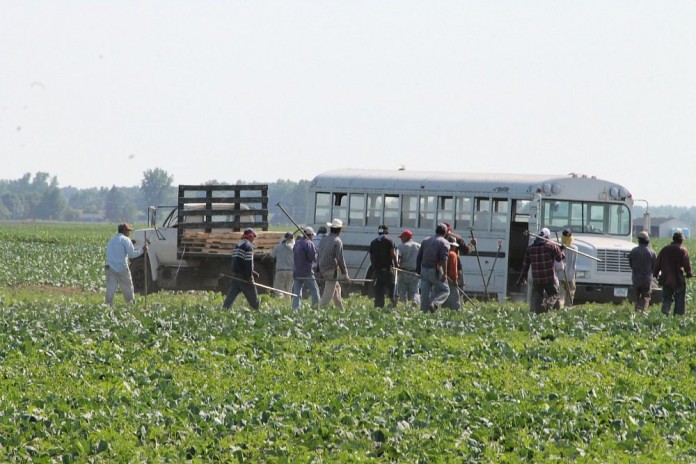If I asked you to define or describe your farm’s culture, how would you respond? Farm culture is not a common conversation topic and is not common farm terminology, but it permeates all aspects of the farming operation.
Farm culture
Farm culture has a great influence on work productivity, employee retention, work enjoyment, job satisfaction and farm profitability. Farm culture is all about the work/business atmosphere on the farm and involves the mission, vision and values of the farm, as expressed and lived by the owners/managers.
Farm culture deals with the beliefs, traditions, habits, assumptions and norms of behavior particular to your farm business.
Every workplace and every farm has a culture built over time based on the how’s and why’s of everyday operation. A significant portion of farm culture is how communication takes place, how people, family members, farm employees, service personnel, sales people, consultants and visitors to the farm are treated.
It has to do with family and employee satisfaction, how they perceive their value to the farm.
It takes effort to create and to maintain a positive work environment and culture.
Building culture
Rather than leave farm culture to random chance, the prudent farm owner/manager is intentional about the type of culture they want to build.
One good source of information regarding building a productive farm culture with an emphasis on valuing and developing human resources is the national farms assuring responsible management (FARM) program, available at https://nationaldairyfarm.com/
The FARM 2019 Human Resource manual suggests farms create a clear mission and vision statement, and develop a code of conduct along with a business ethics policy as first steps in building or improving a positive farm culture.
The manual provides examples of each, along with forms farms can use to create their own documents. The mission statement is a short, no more than one- or two-sentence explanation of why the farm business exists and what the purpose of the farm is.
Documents
A vision statement briefly expresses where the farm is going in the future and what the farm will look like in the future.
These two statements help to guide farm business decisions and become a part of the farm’s employee guidelines. The code of conduct and business ethics documents guide how the farm relates to employees/family members, vendors, suppliers and the local community.
These documents outline the daily operation of the farm. They define how the farm business will respond to adversity and crisis. They may be two separate documents or just one combined document. Think of these documents as the nuts and bolts of how the farm functions, acts, reacts and trains family members and/or employees.
Standards
A central part of these documents deals with expectations of how farm workers (family or non-family) relate to each other and how the farm team functions. It can include general work policies and expectations. Job performance standards and procedures for handling conflicts are defined.
Examples of other topics that are general included are dealing with harassment or discrimination, dealing with alcohol and substance abuse, smoking policy, personal phone calls and texting at work, workplace safety, public relations with the public and neighbors.
Increasingly, the farm’s policy and stance on animal care/welfare is included in these documents.
Improvement
There is always room for improvement in farm culture. The goal is to have engaged workers, whether family or non-family, who treat each other respectfully, enjoy what they are doing and are productive.
Improvement in the farm culture always starts at the top, with the farm owner and/or farm manager. These people set the standard. They must understand the farm mission, vision and workplace policies and be capable of implementing and enforcing codes of conduct and farm business ethics.
Attitudes and actions influence farm culture. Act with respect toward all farm workers in the way you talk with them.
For farms that employee non-native English speakers, providing work-related training documents in their native language or making an effort to learn some simple phrases in their native language will foster a more inclusive work environment.
Take time to say thank you to farm workers for the work they have done. Recognize a job well done and acknowledge it. Encourage differing opinions, ideas and perspectives.
What kind of farm business culture and work environment do you want? Take steps to become intentional in building that farm culture.













